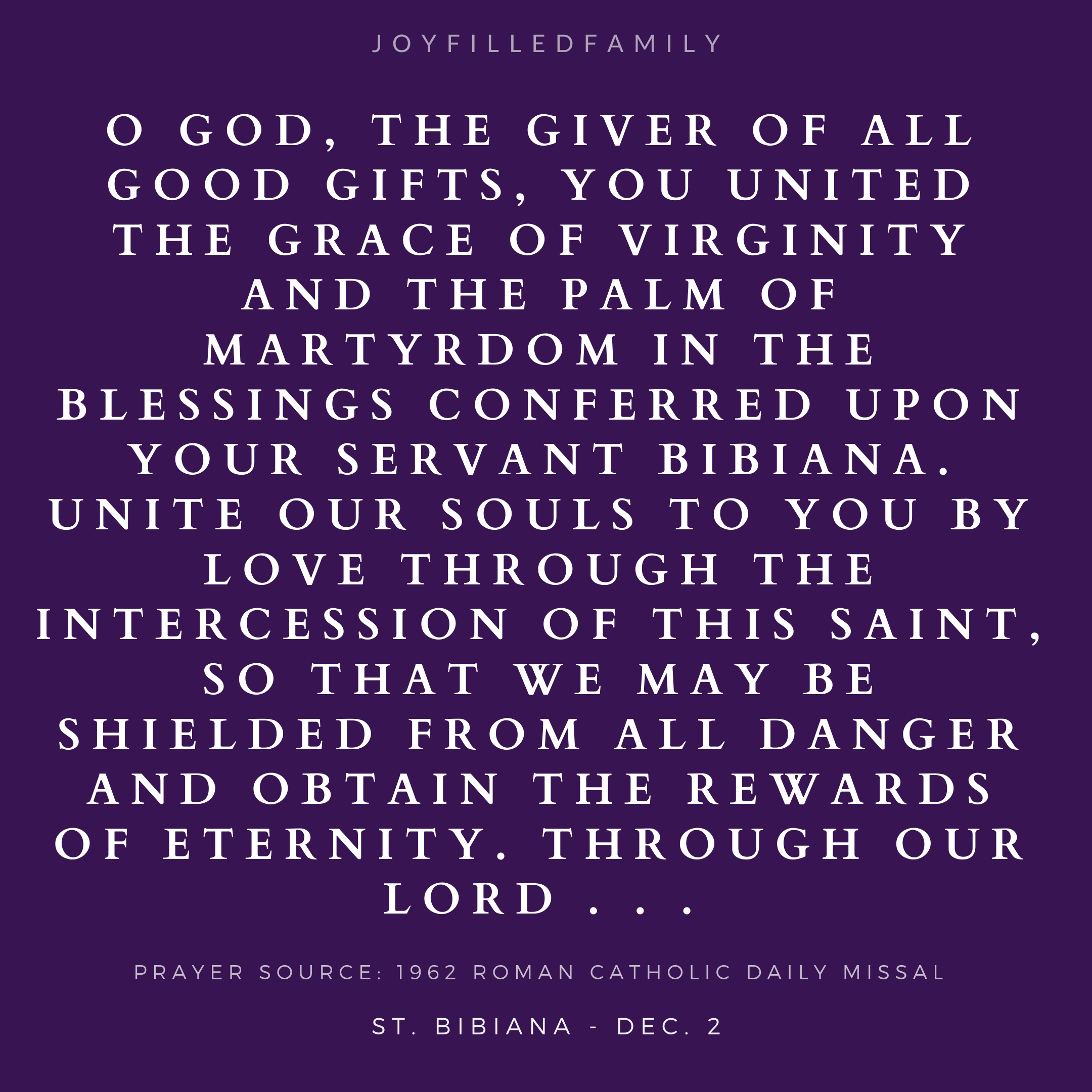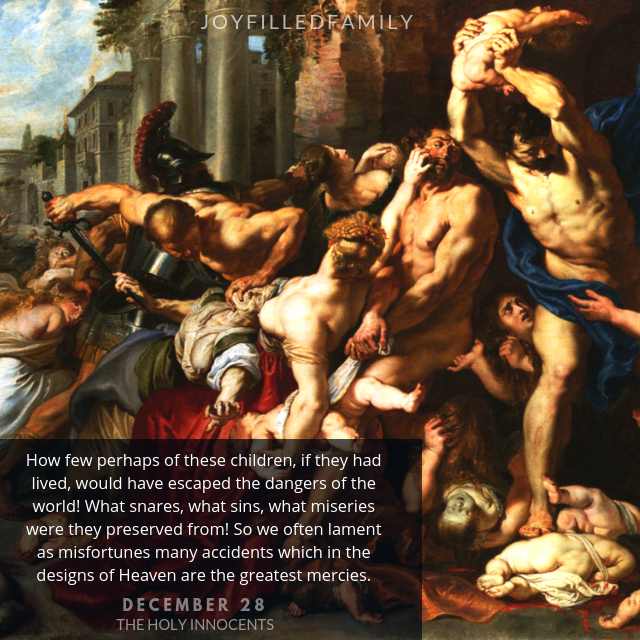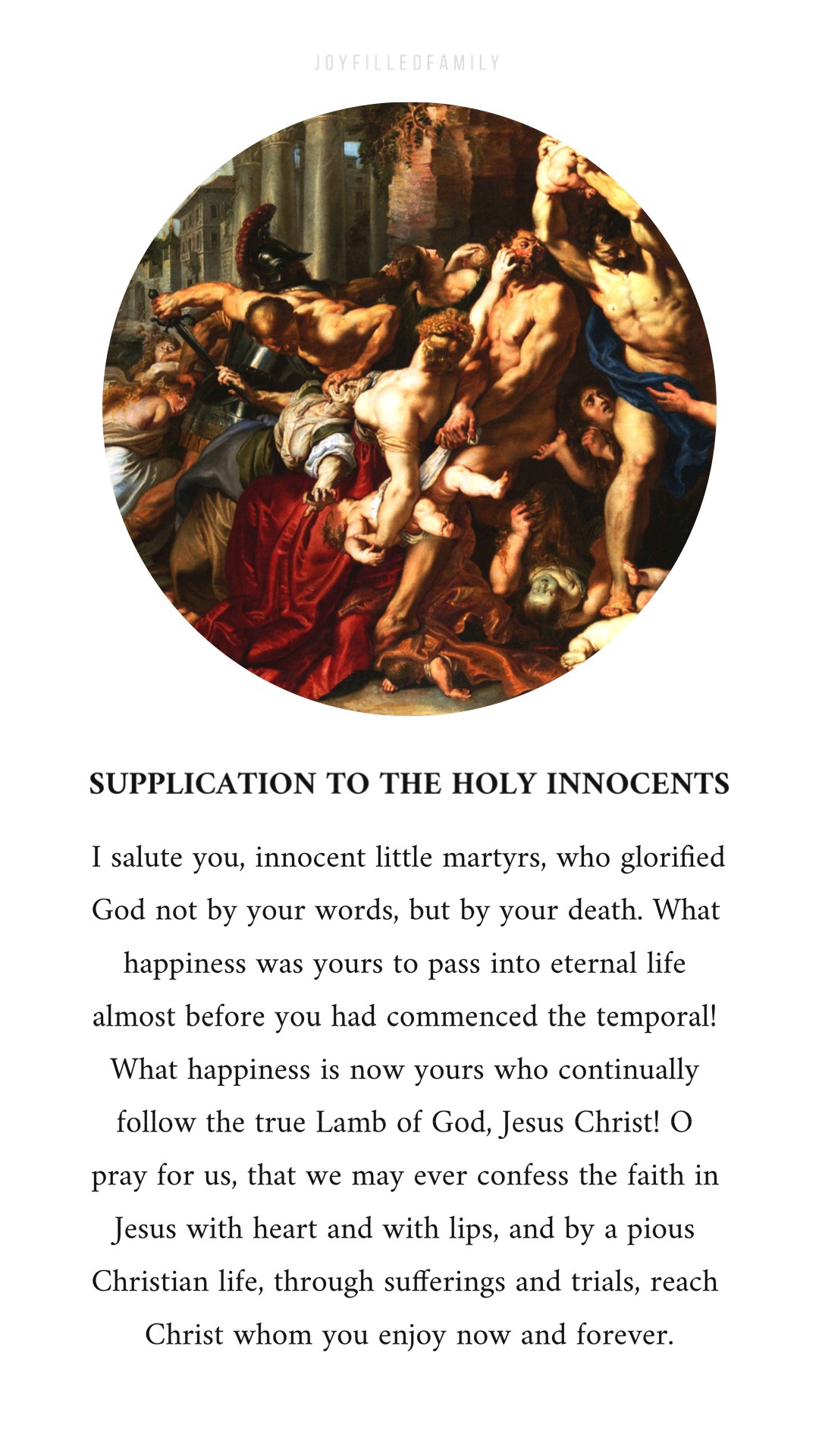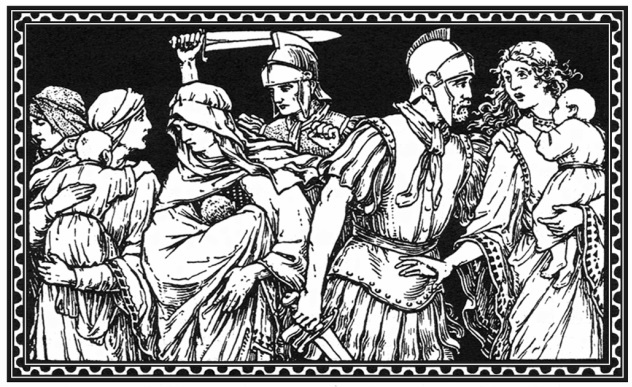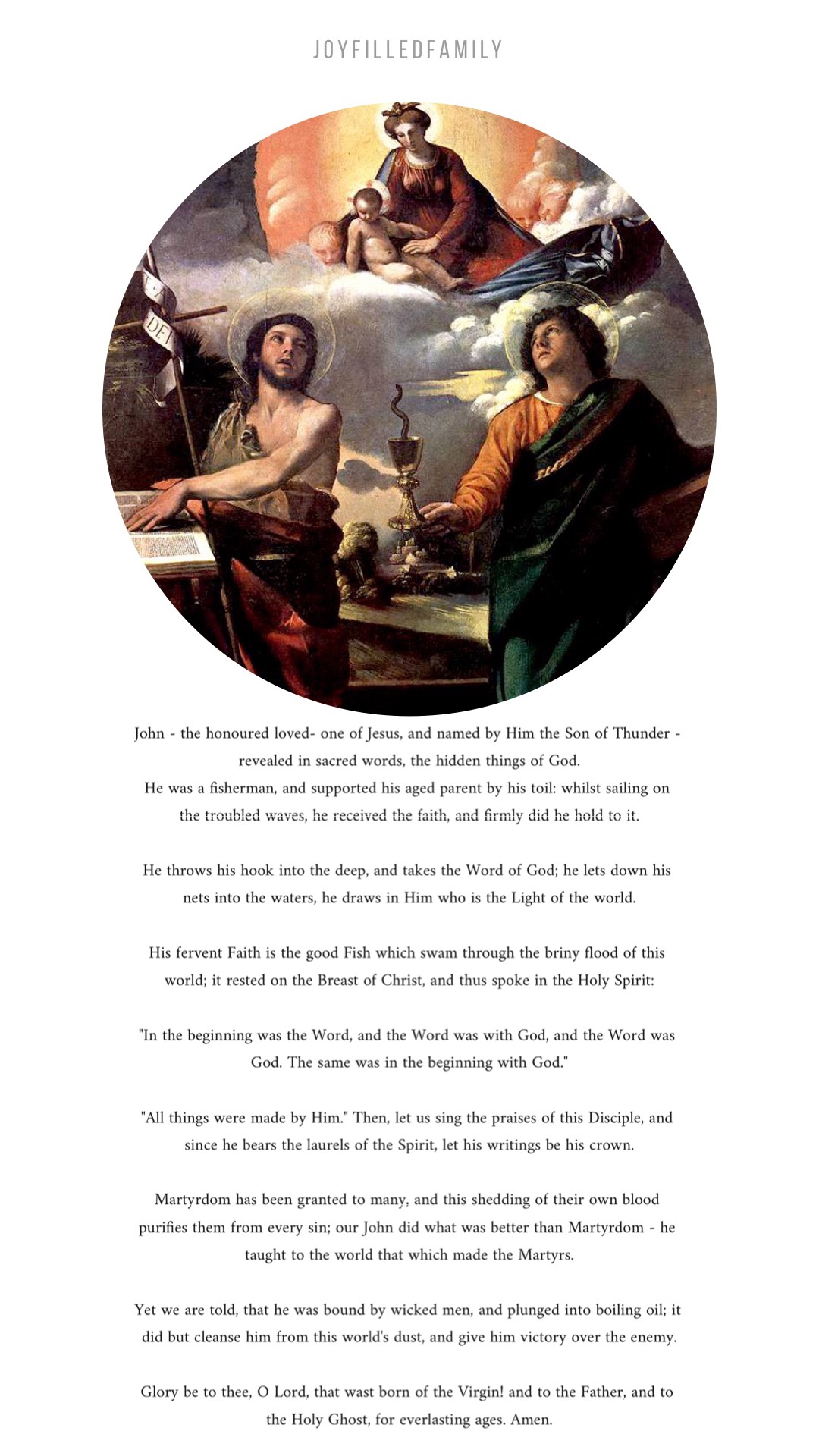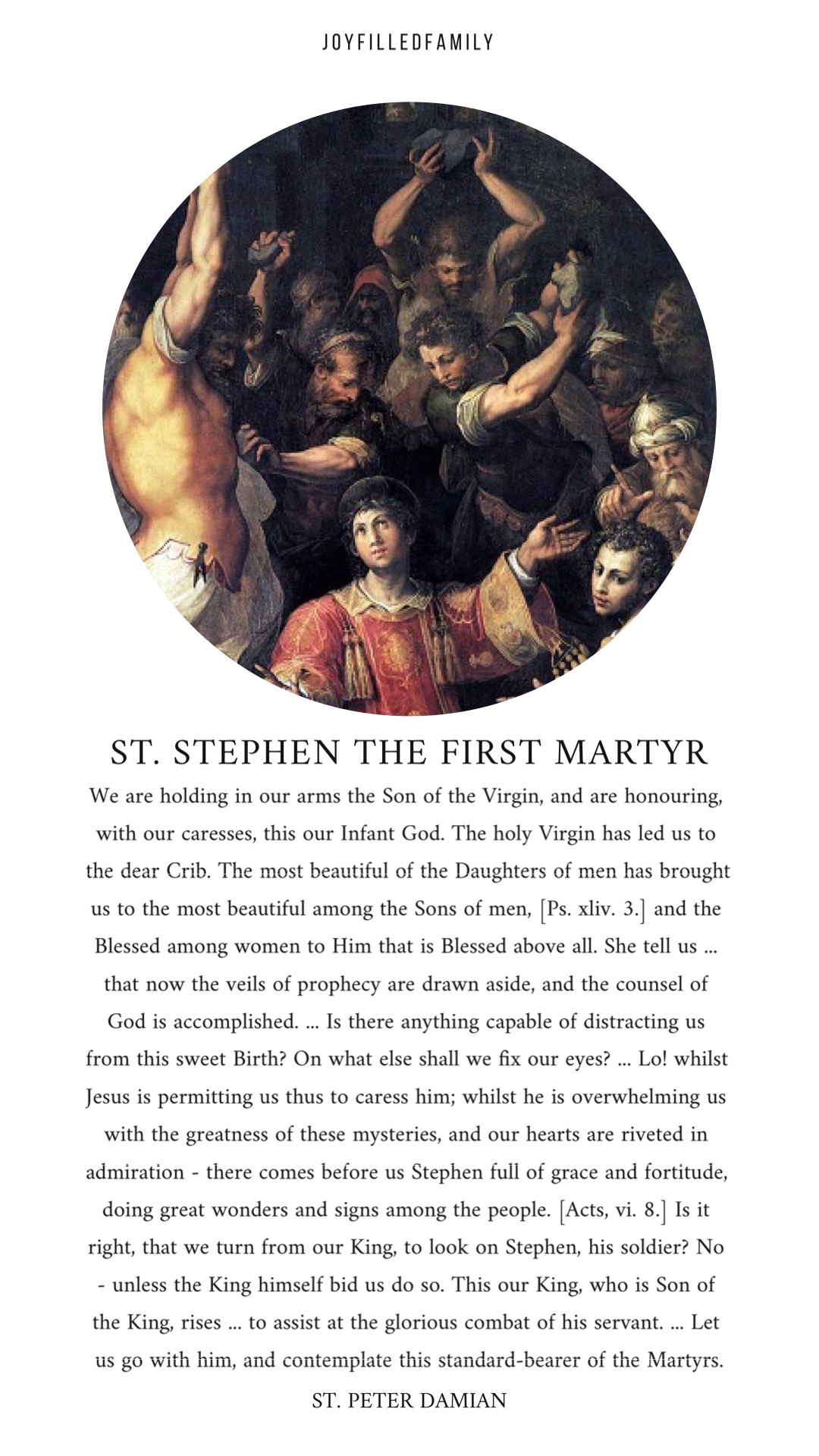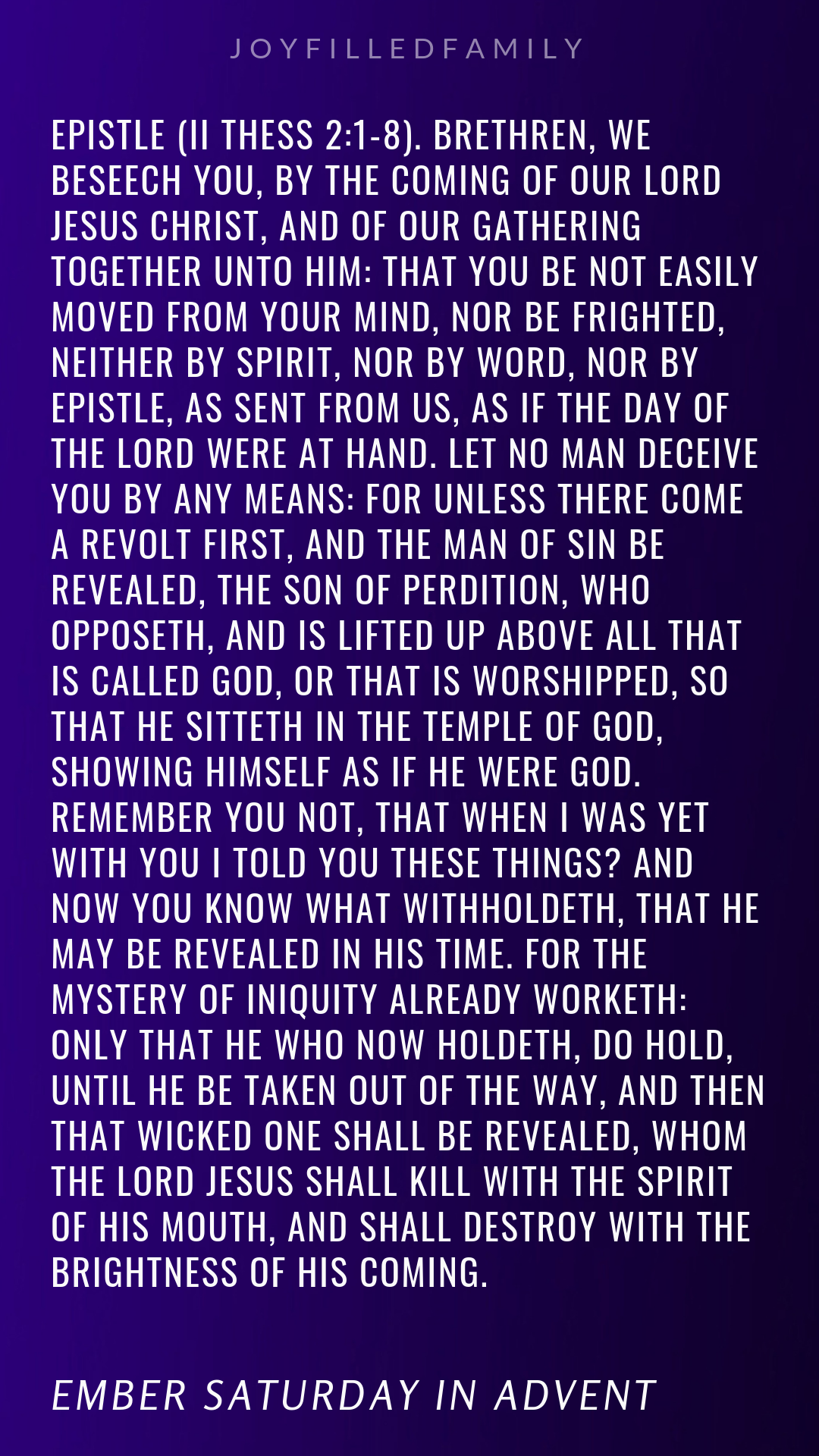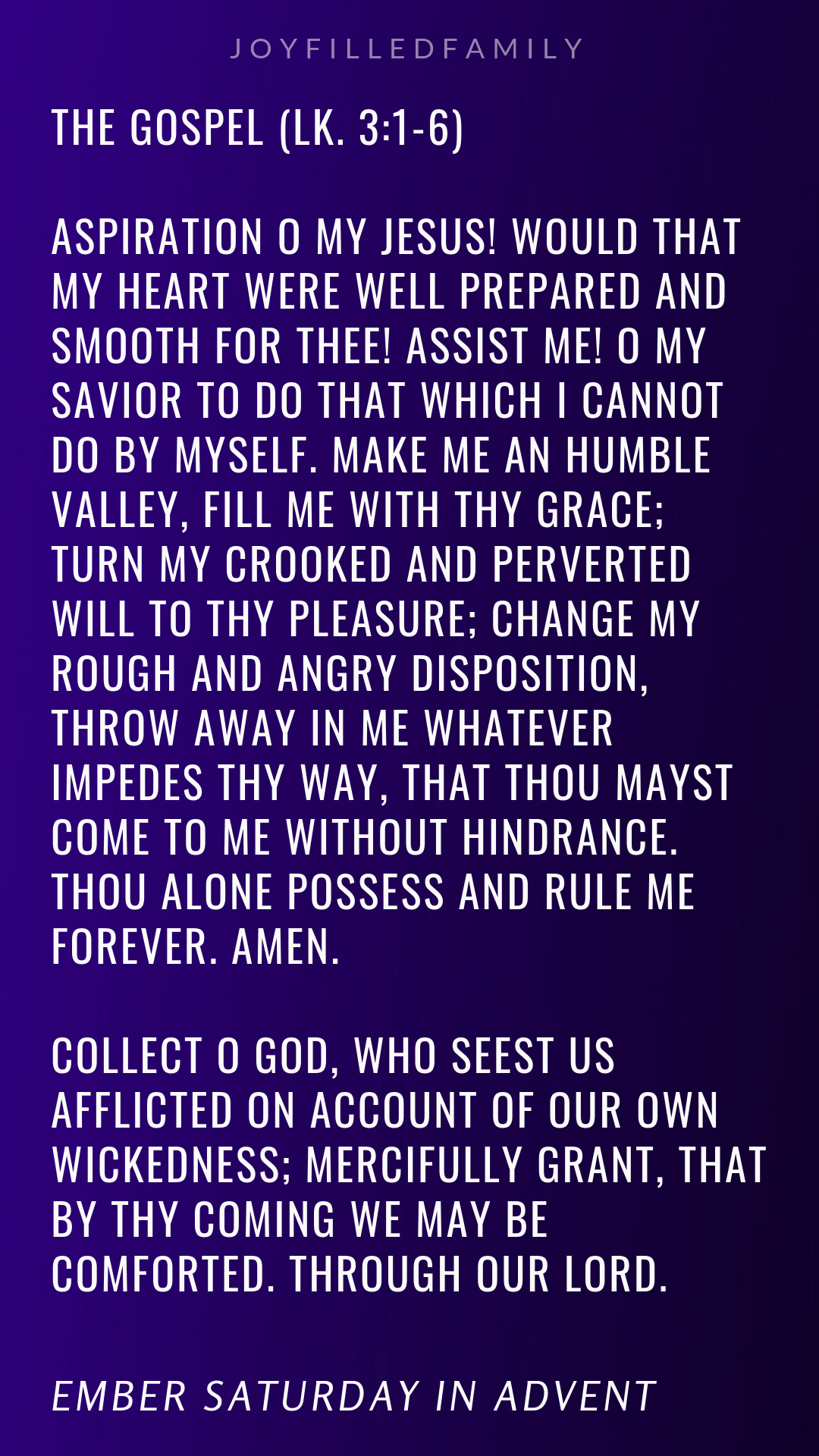
Mass of a
COLLECT
O God, the giver of all good gifts, You united the grace of virginity and the palm of martyrdom in the blessings conferred upon Your servant Bibiana. Unite our souls to You by love Through the intercession of this saint, so that we may be shielded from all danger and obtain the rewards of eternity. Through Our Lord . . .
SECRET
O Lord, graciously accept the gifts we offer You in honor of Your blessed virgin martyr Bibiana and grant us Your unending assistance through these offerings. Through Our Lord . . .
POSTCOMMUNION
We have been nourished by Your Divine Gift, O Lord our God. May the reception of this Bread of Heaven bring us eternal life through the intercession of Your blessed virgin martyr Bibiana. Through Our Lord . . .
Patron: Diocese of Los Angeles, California; epilepsy; epileptics; hangovers; headaches; insanity; mental illness; mentally ill people; single laywomen; torture victims.
Symbols: pillar; branch of a tree; dagger; scourge; column and scourge with leaded thongs.
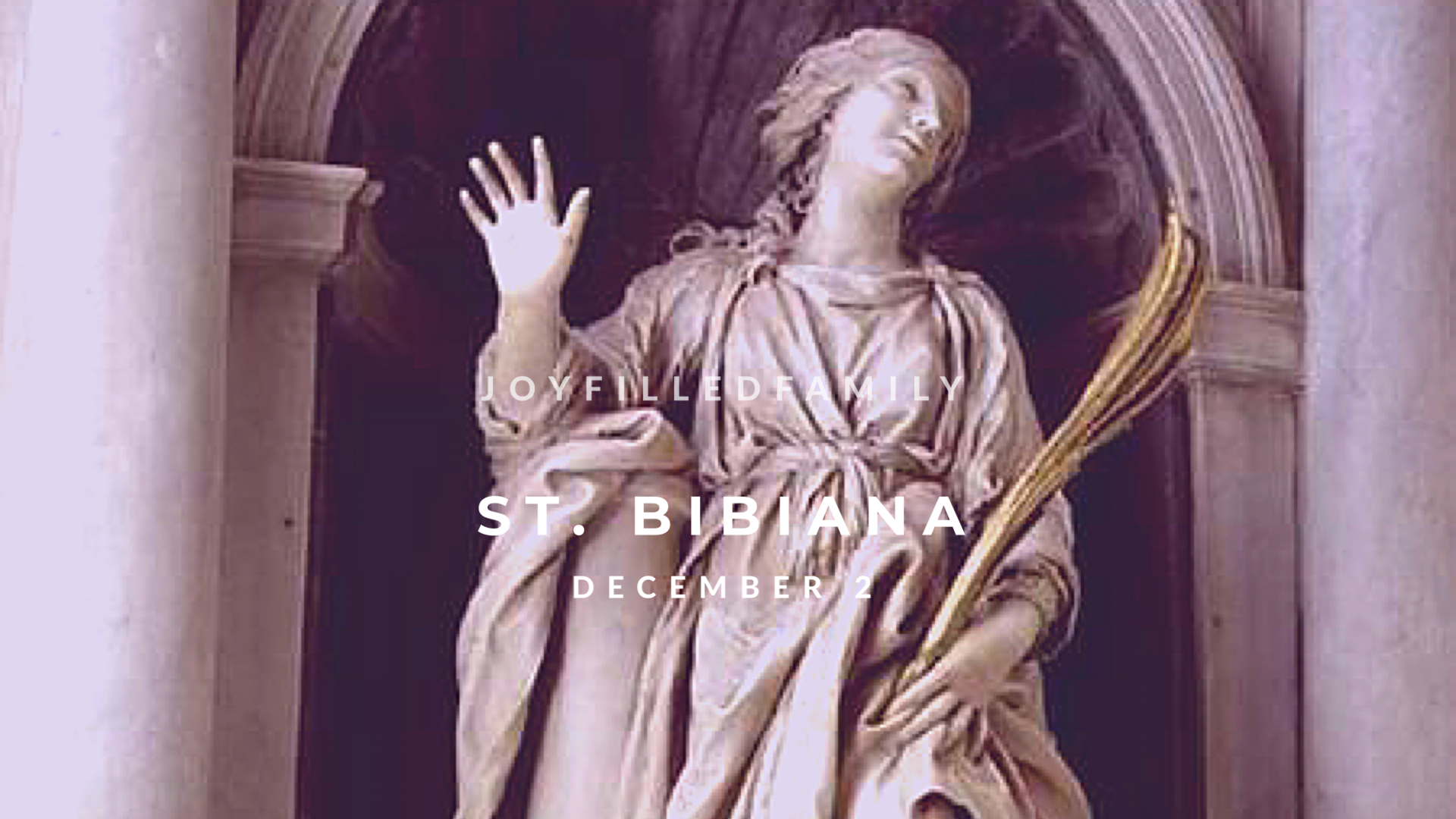
Bibiana was a Roman Virgin, noble by birth, but more noble by her profession of the Christian faith. For, under the most wicked tyrant Julian the Apostate, Flavian, her father, was deprived of his dignity of prefect, and being branded with the mark of slavery, he was banished to Aquae Taurinae, and there died a martyr. Her mother, Dafrosa, was first shut up in her own house with her daughters, that she might die by starvation; but shortly afterwards was banished from Rome and beheaded. The virtuous parents thus put to death, Bibiana was deprived of all her possessions, as also was her sister, Demetria. Apronianus, the City Praetor, thirsting after their wealth, persecuted the two sisters. They were bereaved of every human help. But God, who gives food to them that are in hunger, wonderfully nourished them; and the Praetor was astonished on finding them in better health and strength than before.
Apronianus, notwithstanding, endeavoured to induce them to venerate the gods of the Gentiles. If they consented, he promised them the recovery of all their wealth, the Emperor’s favour, and marriage to the noblest in the empire: but should they refuse, he threatened them with prison, and scourgings, and the sword. But neither promises nor threats made them abandon the true faith; they would rather die than be defiled by the idolatrous practices of paganism; and they resolutely resisted the impious Praetor. Whereupon, Demetria was struck down in the presence of Bibiana, and slept in the Lord. Bibiana was delivered over to a woman by name Eufina, who was most skilled in the art of seduction. But the virgin, taught from her infancy to observe the Christian law, and to preserve with the utmost jealousy the flower of her virginity, rose above nature, defeated all the artifices of the wretched Rufina, and foiled the craft of the Praetor.
Finding, therefore, that Rufina could in no wise shake the virgin’s holy resolution, and that both her wicked words and frequent blows were of no avail; and seeing his hopes disappointed and his labour thrown away, the Praetor became violently enraged, and ordered Bibiana to be stripped by the lictors, to be fastened to a pillar with her hands bound, and to be beaten to death with leaded whips. Her sacred body was left for two days in the Bull-Forum, as food for dogs, but received no injury, being divinely preserved. A priest called John then buried it during the night, close to the grave of her sister and mother, near the Palace Licinius, where there stands at this day a Church consecrated to God under the title of Saint Bibiana. Pope Urban VIII restored this Church, having there discovered the bodies of Saints Bibiana, Demetria, and Dafrosa, which he placed under the high altar.
Holy Bibiana, most wise Virgin! you have gone through the long unbroken watch of this life; and when, suddenly, the Spouse came, your lamp was bright and richly fed with oil. Now you are dwelling in the abode of the eternal marriage-feast, where the Beloved feeds among the lilies. Remember us who are still living in the expectation of that same divine Spouse, whose eternal embrace is secured to you for ever. We are awaiting the Birth of the Saviour of the world, which is to be the end of sin and the beginning of justice; we are awaiting the coming of this Saviour into our souls that he may give them life and union with himself by love; we are awaiting our Judge, the Judge of the living and the dead. Most wise Virgin! intercede for us, by your fervent prayers, with this our Saviour, our Spouse, and our Judge; pray that each of these three visits may work and perfect in us that divine union, for which we have all been created. Pray also, O faithful Virgin, for the Church on earth, which gave you to the Church in heaven, and which so devoutly watches over your precious remains. Obtain for her that strict fidelity, which will ever render her worthy of Him, who is her Spouse as he is yours. Though he has enriched her with the most magnificent gifts, and given her confidence by his promises which cannot fail, yet does he wish her to ask, and us to ask for her, the graces which will lead her to the glorious destiny which awaits her.
– Dom Prosper Gueranger
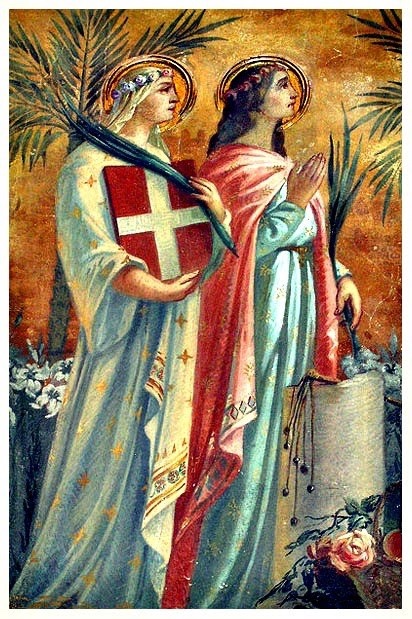
Pictorial Lives of the Saints – Saint Bibiana, Virgin, Martyr
Saint Bibiana was a native of Rome. Flavian, her father, was apprehended, burned in the face with a hot iron, and banished to Acquapendente, where he died of his wounds a few days after; and her mother, Dafrosa, was some time after beheaded. Bibiana and her sister Demetria, after the death of their parents, were stripped of all they had in the world and suffered much from poverty. Apronianus, Governor of Rome, summoned them to appear before him. Demetria, having made confession of her faith, fell down and expired at the foot of the tribunal, in the presence of the judge. Apronianus gave orders that Bibiana should be put into the hands of a wicked woman named Rufina, who was to bring her to another way of thinking; but Bibiana, making prayer her shield, remained invincible. Apronianus, enraged at the courage and perseverance of a tender virgin, ordered her to be tied to a pillar and whipped with scourges loaded with leaden plummets till she expired. The Saint underwent this punishment cheerfully, and died in the hands of the executioners.
Reflection – Pray for a fidelity and patience like Bibiana’s under all trials, that neither convenience nor any worldly advantage may ever prevail upon you to transgress your duty.
